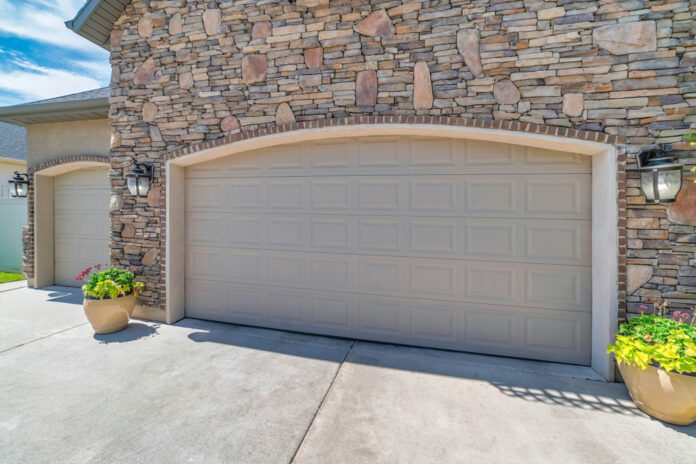That loud screech when your garage door opens? It’s the kind of noise that makes your neighbours peek through their curtains. A garage door shouldn’t sound like a horror movie prop. Good news: fixing it is easier than you think.
If you’re tired of wincing every time you hit the remote, you’re not alone. Lots of people end up searching for the best garage door companies just to stop the racket. But before you call in the pros, there are a few tricks you can try on your own.
Let’s break down what actually causes the noise and how to get some quiet back in your driveway.
Why Garage Doors Get Noisy
Most of the sound comes from friction and wear. Metal parts grinding together, loose hardware, or a tired motor all add their own soundtrack. Sometimes it’s just dust and rust making things worse.
Think of it like an old bike chain. If you don’t oil it, it squeaks. A garage door is just a bigger, heavier version of the same problem.
Step One: Tighten Everything Up
Grab a wrench and go around your garage door system. Every hinge, bolt, and bracket can loosen with daily use. A little tightening can cut out a surprising amount of noise.
Don’t crank them until they strip, just snug enough to stop the rattling. You’ll be shocked at how many vibrations vanish after this step.
Step Two: Lube It Like You Mean It
WD-40 isn’t the answer here. You’ll want a silicone-based or lithium-based garage door lubricant. Spray it on the rollers, hinges, tracks, and springs.
Here’s the cheat code: wipe off the extra so it doesn’t collect dirt. A quick oil job is often the fastest way to silence a garage door that sounds like it’s auditioning for a metal band.
Step Three: Check the Rollers
Metal rollers are durable, but they can be noisy when they get worn down. Swapping them for nylon rollers is like trading in a clunky SUV for a smooth electric car.
If your rollers look chipped or cracked, they’re overdue for a change. It’s a small upgrade that makes a big difference.
Step Four: Look at the Springs
The springs above your garage door carry most of the weight. When they’re old, they squeal and grind. Here’s the thing: don’t mess with springs unless you know what you’re doing.
They’re under serious tension, and one wrong move can send you to the ER. This is where calling a pro makes sense.
Step Five: Inspect the Tracks
If your door sounds like it’s scraping against something, the tracks might be misaligned. Look for bends, gaps, or spots where the rollers don’t sit right.
You can gently adjust small issues with a rubber mallet. Big bends, though, usually mean it’s time to replace the track.
Step Six: Check the Motor and Opener
Sometimes the door isn’t the issue at all. An old opener motor can groan louder than the door itself.
Belt-drive openers are much quieter than chain-drive models. If your motor sounds like a blender full of rocks, upgrading could be the best fix.
Extra Quiet Hacks
-
Weatherstripping:
Adding a rubber seal not only keeps out drafts but also softens the slam when the door closes.
-
Anti-vibration Pads:
Place these under the opener’s mounting points to reduce the shake and rattle.
-
Insulation:
An insulated door muffles sound both inside and outside. Bonus: it keeps your garage warmer in winter.
When It’s Time to Call the Pros
If you’ve tightened, lubed, swapped rollers, and the noise is still killing your vibe, it’s worth getting expert eyes on it.
Professionals can spot cracks in the springs, worn cables, or hidden alignment problems you’d never notice. And they’ve got the gear to fix it safely. Quality garage door repair in OKC addresses worn components before they lead to larger system failures.
The Cost Factor
Here’s the good news: most noise fixes don’t break the bank. Lubrication and tightening? Practically free. Nylon rollers? Around the cost of a nice dinner out.
A new opener or spring replacement costs more, but it’s also an investment in safety and convenience. Plus, a quieter garage door feels like a luxury upgrade without the luxury price tag.
The Style Factor
Let’s be honest. A noisy garage door doesn’t just annoy you, it kills the vibe of your home. Imagine pulling up in a sleek car, only to have your garage door scream like a rusty gate. Not the flex you want.
A smooth, quiet door is like a good soundtrack. It sets the tone every time you come home.
Quick Checklist to Silence Your Door
- Tighten bolts and hinges
- Lube moving parts with silicone or lithium spray
- Replace metal rollers with nylon
- Inspect and, if needed, replace springs (with pro help)
- Realign tracks
- Upgrade to a belt-drive opener
Tick these off and your garage door will go from banshee to barely-there.
Final Thoughts
A noisy home garage door isn’t something you have to live with. Most fixes are quick, cheap, and DIY-friendly. But when the job looks sketchy or involves heavy tension parts, let the pros handle it.
Silence isn’t just golden, it’s way less embarrassing when you pull into your driveway.
Want the quiet life without the guesswork? If your home garage door’s still giving you grief after the basics, booking a professional inspection is worth it. One service call can save you a lot of noise, frustration, and potential damage down the road.
Find a Home-Based Business to Start-Up >>> Hundreds of Business Listings.
















































